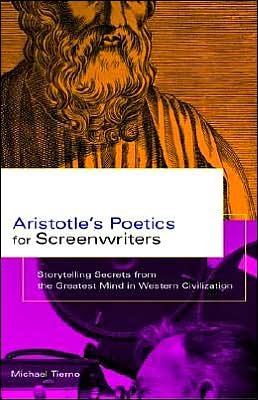What do you think?
Rate this book


Unknown Binding
First published August 21, 2002
 (Though be careful and research which translation you pick, there's multiple one's as Aristotle wrote it long ago (335 BC) and ancient things like that get redefined and updated all the time. Though that doesnt mean the latest translation is the best.) If the original doesn't work out, apparently this version is the alternative for screen/play writers.
(Though be careful and research which translation you pick, there's multiple one's as Aristotle wrote it long ago (335 BC) and ancient things like that get redefined and updated all the time. Though that doesnt mean the latest translation is the best.) If the original doesn't work out, apparently this version is the alternative for screen/play writers.